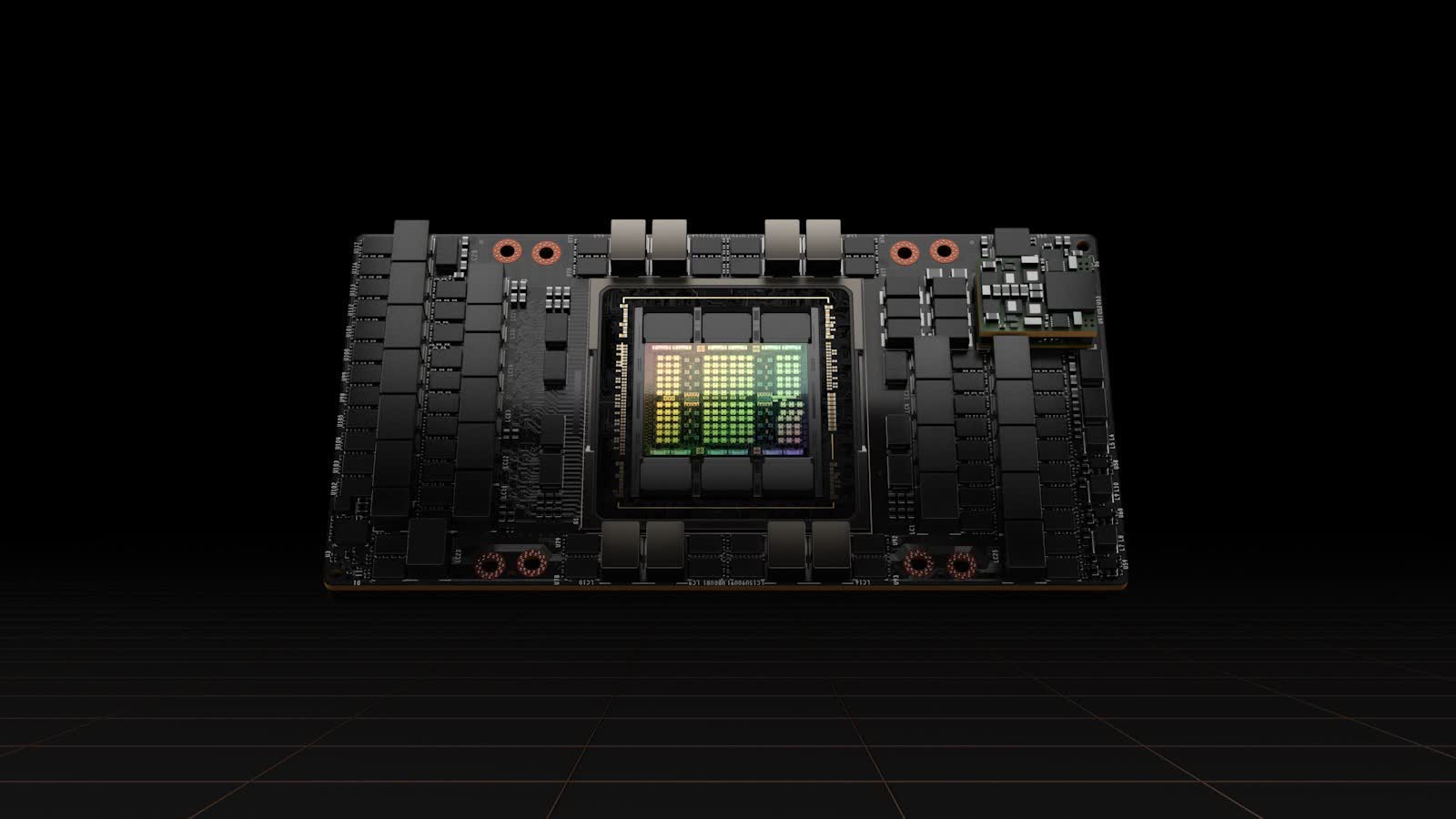In brief: Nvidia's usually robust share price has fallen more than 2% on the back of a new report that claims the United States is considering further restrictions on the export of artificial intelligence chips to China. While the move would have the biggest impact on Nvidia, AMD also saw its share price dip.
The Wall Street Journal reports that Washington is considering tightening its export controls on AI chips to China as a means of preventing US companies' top hardware from being used by or diverted to military users, finding its way into the nation's supercomputers, or being used for hacking.
In September last year, the US further tightened sanctions against China by instructing Nvidia and AMD to stop selling their high-performance AI-focused GPUs to the country (and Russia). The sanctions mean that China cannot import Nvidia A100 or H100 GPUs, while AMD's MI250 Instinct card is also prohibited, leaving less powerful options such as the MI100 accelerator and the Nvidia A800, the latter of which was created to comply with the sanctions.
According to three people familiar with the situation, the US commerce department is preparing to update October's export controls, which would make it even harder for the likes of Nvidia and AMD to sell their AI products to China. Companies would need to obtain a license to export the AI chips, including the A800 and H800, to countries of concern.
Elsewhere, the Biden administration is also considering restricting the leasing of cloud services to Chinese AI companies, which have used these tools to circumvent bans on advanced chips.
Nvidia has managed to keep growing its AI business in China despite the current restrictions, but a more expansive ban would have a massive impact on the company. Team green has forecast it will make $11 billion in revenue in the next quarter, a year-on-year rise of around 80%, thanks to its AI-focused products. Tencent, Alibaba, and Baidu have made additional orders for Nvidia chips this year, while ByteDance has reportedly ordered $1 billion worth of Nvidia GPUs.
Nvidia CEO Jensen Huang previously told the Financial Times that the existing export controls have left his company with its "hands tied behind our back" by stopping it from selling the most advanced AI products to China. A more comprehensive ban would cause even more problems.
Earlier this month we heard that universities and businesses in China are turning to underground dealers to secure restricted Nvidia AI chips, and paying a premium to get their hands on them.
